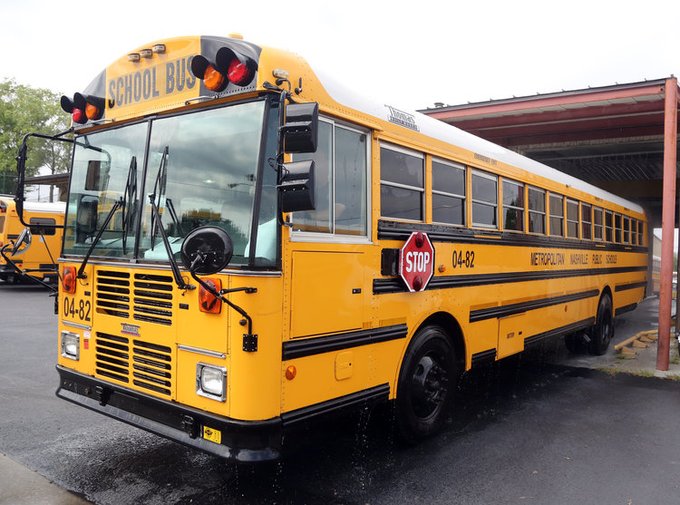
As a school bus driver, Eric Warfield has always felt like an afterthought to education leaders.
“They don’t put enough emphasis for anybody outside the classroom,” he adds.
Warfield has driven Nashville students for three decades. He says the past few years have been the toughest points of his career, and it’s only getting worse.
This school year so far, Metro Nashville Public Schools has lost 34 drivers, including 22 who resigned, 10 who retired and two who passed away, according to school officials. The district was able to hire seven drivers, but still need 72 to cover all routes.
Nashville isn’t alone. School systems across Tennessee are feeling the brunt of bus driver shortages. All of this is happening while education officials are considering how to better serve schools through a new-and-improved funding formula. A final proposal is still in the works, but on Thursday, Gov. Bill Lee said state legislators may see a detailed outline by the end of next week.
“We are leaving our bus drivers in the shadows,” says school board member John Little, who’s been organizing with drivers for better support. “With a new funding formula being discussed, it’s imperative that we not only support our bus drivers physically but also financially. Any new funding formula should also increase the amount of funding we issue for transporting our children.”
The issue of transportation is expected to be addressed in the state proposal but education officials say, it’s ultimately up to local districts to decide how to meet the needs of their support staff.
Brian Blackley, the spokesperson for the state education department, tells WPLN News that officials are working on separate plans to help alleviate the staffing crunch, including a transportation survey to learn more about each district’s situation and identify potential solutions.
In Nashville, the school district plans to ask for increased funding for support staff salaries in the upcoming city budget. A pay study for all support staff positions is also underway but it’s unclear whether that report will be finished by the city’s budget season.
Last year, the mayor did allocate extra funding for a 2% cost-of-living adjustment and step increases. MNPS has also offered attendance and referral bonuses to drivers, but Warfield says the only way to improve retention is by offering a substantial raise across the board.
MNPS school officials say the issue ties back to more state funding. It’s unclear whether a new formula will mean more money for Nashville schools.
“If the state follows through on a significant investment in new funding for public education of at least $1 billion, and the state’s new funding formula provides a student-based funding model that targets additional resources for higher-needs students, we are optimistic that we will have additional recurring operating funds that can be used to have more market-competitive wages and staffing to meet the needs of students,” says Sean Braisted, the spokesperson for MNPS.
Still, some support staff members like Warfield are losing faith by the commitments made from local and state officials. He’s disappointed that a pay study wasn’t conducted sooner.
“So you hadn’t worked on none of this?” Warfield says. “Now that it gets to a critical state, then you want to tell us we still have to work another year for you to figure it out?”

